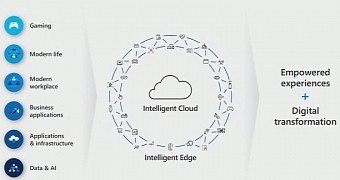By giving up on a series of products like Windows Phone and focusing more on services like cloud, Microsoft has offered everyone the impression that the future is all enterprise.
At some point, this is a strategy that makes sense since it generates increased revenue every quarter, but leaving consumers behind isn’t at all the right thing to do for a tech company the size of Microsoft.
And by the looks of things, the software giant has finally got this message and is now working on winning back consumers with an effort called Modern Life Services.
As reported by ZDNet, this new program is supposed to happen under the supervision of Yusuf Mehdi, who is Microsoft’s new corporate vice president of Modern Life and Devices and in charge of making consumers an important part of the company’s portfolio.
The whole idea of Modern Life Services is for Microsoft to concentrate more on what it calls professional consumers, who according to the report “are people who already know how to use technology but need to figure out how to use it better to make them more productive.”
No new devices planned yet
In other words, Microsoft wants to go even further with its focus on productivity, but also make consumers part of this push.
At a meeting with partners in Las Vegas, Mehdi explained how this new approach would work. The company will invest in apps and services that make sense for consumers, like the Your Phone app that brings phones and Windows 10 devices in sync. Windows 10 and the Office productivity suite will play key roles in this new plan, as they rely on a mix of consumer features and productivity that could help Microsoft appeal to these professional consumers.
In terms of devices, Microsoft isn’t planning any new models that could help support its consumer offensive, though the low-cost Surface Go launched recently would be part of it.
Andromeda, on the other hand, not only that isn’t mentioned as a consumer device, but it’s also uncertain entirely, with recent speculation claiming that Microsoft is back to the drawing board, pushing the potential launch back to 2019.

 14 DAY TRIAL //
14 DAY TRIAL //